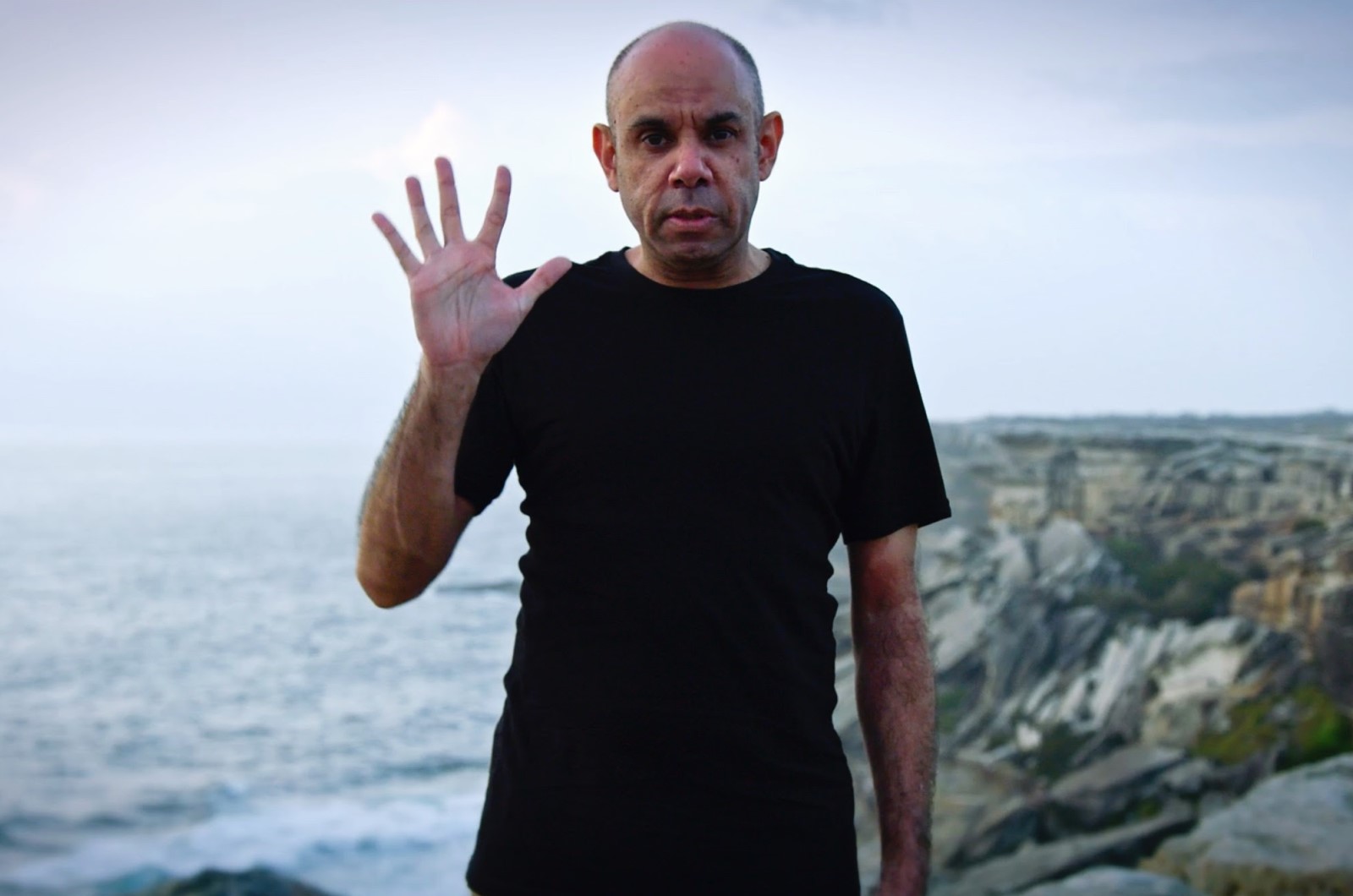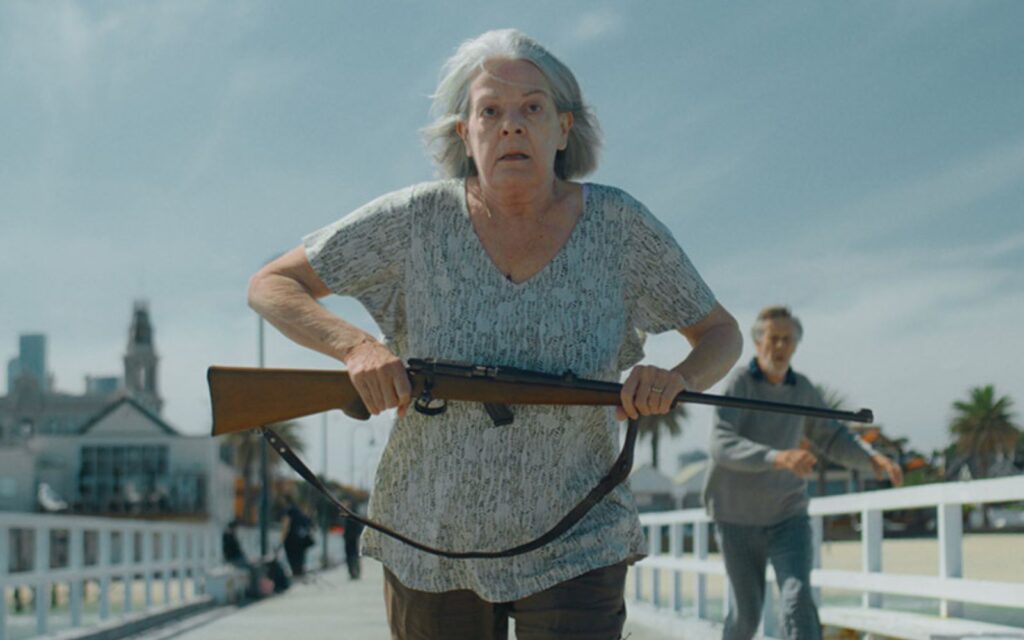★★★★½
The documentary makes it clear that in order to heal this country, Australian history needs to include Aboriginal history.
In Australian classrooms, children are taught about Captain James Cook, a heroic explorer who discovered the ‘uninhabited’ continent we now call home. This nation’s history is built on Cook’s diary entries which recount his expedition across the high seas and his declaration of terra nullius on the distant, foreign land he encountered on his journey.
But for the sovereign inhabitants of this country who were categorised as flora and fauna by the white boat people who stole their land from under their feet, Captain Cook isn’t hailed as a hero or a fearless adventurer and his arrival on the HMB Endeavour in 1770 isn’t cause for celebration.
250 years on from Cook’s Australian voyage, Looky Looky Here Comes Cooky reimagines his arrival on these shores from a First Nations perspective. Presented and co-written by Steven Oliver and directed by Steven McGregor, the film challenges the white man’s narrative of how civilisation in Australia came to be and asks whether our view of Captain Cook is blurred.
The film is centred around songlines and how Indigenous communities have passed their stories down through generations using song and oral history. Through interviews and performances with contemporary artists such as Trials, Birdz, Alice Skye, Mo’Ju and more, it demonstrates how integral these songlines are to preserving First Nations culture and a connection to country.
For Alice Skye, incorporating her native language into her music and inhabiting spaces that belonged to her ancestors are powerful steps towards undoing the erasure of her culture that resulted from colonisation. For Mo’Ju, it’s a matter of ensuring that First Nations kids see themselves represented in the mainstream music industry and in the media.
“You can’t be what you can’t see,” she surmises.
https://www.instagram.com/p/CDzwFHNFXTE/
Told through song, poem and interview, the film considers a diverse range of Indigenous perspectives of colonisation and how the story of Australia has neglected this nation’s First People and their stories.
“To tell the real story of this continent, you’ve got to have both histories,” says Oliver.
Not only does Looky Looky Here Comes Cooky invite viewers to consider a different perspective on Cook’s arrival than the one we’ve been sold, but it contests the verity of some of his claims.
The film seeks Indigenous historians to set the record straight, uncovering adamant arguments that Cook never stepped foot on Possession Island to claim the eastern half of the continent as New South Wales for Great Britain.
Those native to the small island of Bedanug in the Torres Strait, which was dubbed Possession Island, say the famous painting of Cook planting the Union Jack on their soil clearly depicts another island as the trees in the painting do not resemble those that grow on Bedanug.
And as for the “consent of the Natives” King George III instructed Cook to obtain in order to take possession of this land, well we all know that was never granted. Cook didn’t even ask for the permission he was supposed to seek before he started claiming everything in sight.
Throughout the film, Oliver seamlessly zags between comedic jabs at Captain “Jimmy James” and poignant perspectives on just how damaging the whitewashing of this country and its history books has been to Indigenous Australians for centuries.
There are two sides to every story and as long as we try to unwrite or ignore First Nations history, this country will never be whole.
Looky Looky Here Comes Cooky screened as part of MIFF 68½. The festival runs until Sunday August 23. Head to the festival website for tickets and the full program.
Never miss a story. Sign up to Beat’s newsletter and you’ll be served fresh music, arts, food and culture stories three times a week.







